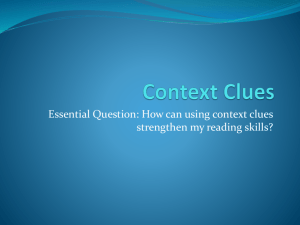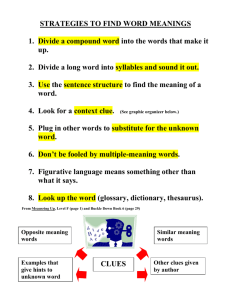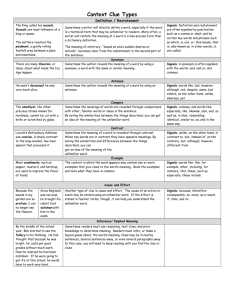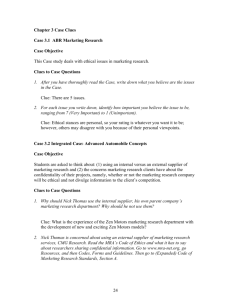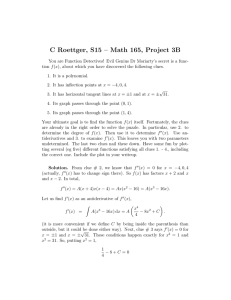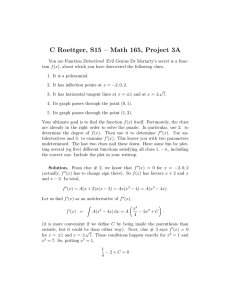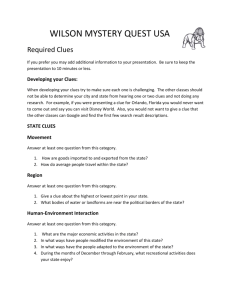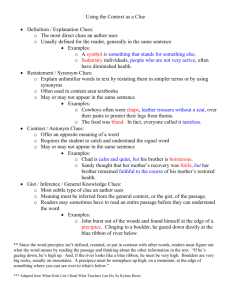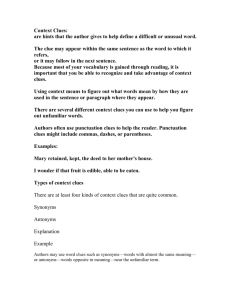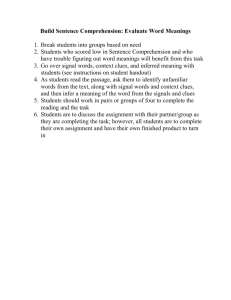CONTEXT CLUES STRATEGIES - San Elijo Middle School
advertisement
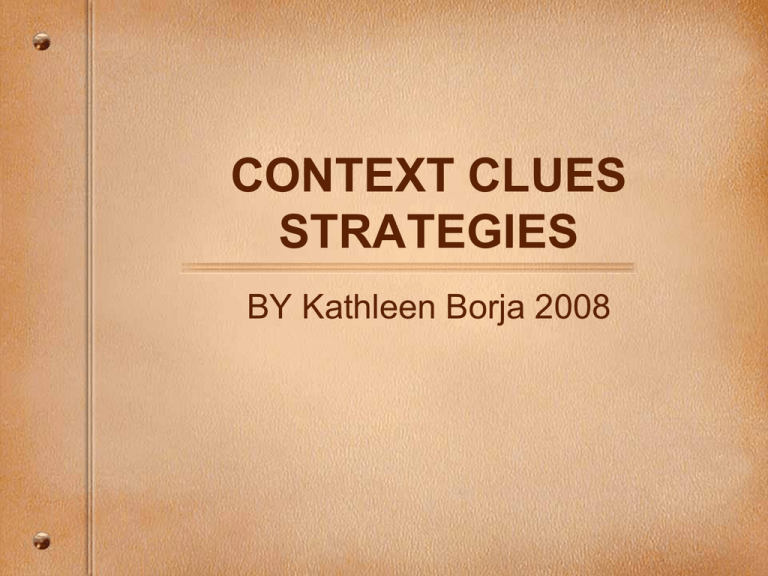
CONTEXT CLUES STRATEGIES BY Kathleen Borja 2008 Purpose of Context Clue Strategies • To help you figure our unfamiliar or unknown words when no dictionary, parent or other source is available. • To help you work out the meaning of the word by the context of the surrounding words. Definition • Often a sentence will contain the actual definition of the word. • Example: People who suffer from acrophobia or the fear of heights, shouldn’t climb mountains. • The actual definition of acrophobia is given to you in the sentence. Example/illustration • Often a sentence will provide many examples, details which help you understand the word. • For example: Mr. Jones is a recluse. He lives along on the edge of town and never comes out of his house. • It is easy to picture what “recluse means. It must mean that a person who is alone or isolated. Contrast • Sometimes an unknown word is used in contrast/opposite(antonym) to a word that you do know or that is explained in the sentence • For example, Unlike Professor Dixon, who is extremely nervous, Professor Benton is very placid. • Even if you don’t know the meaning of placid, you do know that it is the opposite of nervous therefore it must mean calm. Logic/common sense • Your knowledge about the world or a particular situation can help you understand a word. • For example: the baby-sitter put a pacifier in the baby’s mouth and suddenly little Johnny stopped crying. • Common knowledge about caring for infants helps you understand that the little piece of rubber that is used in baby’s mouth to calm them down is called a pacifier. Latin and Greek Roots • You need to try to know as many prefixes, suffixes and roots as possible because they give you clues about unfamiliar words. • For example: Many politicians still favor the use of geothermal energy. • The prefix geo may remind you of geography, so you have a clue that it must have to do with earth. The stem therm reminds you of thermometer, which is a clue that it is a word related to heat. Geothermal refers to energy that is produced by earth’s heat. Reflection • Tell your neighbor the 5 strategies or the types of clues to look for when figuring our unknown words in text. • Now write the summary to your Cornell Notes
